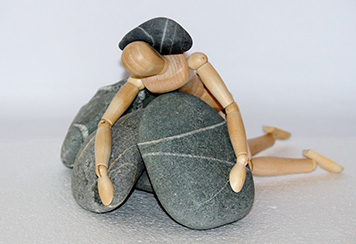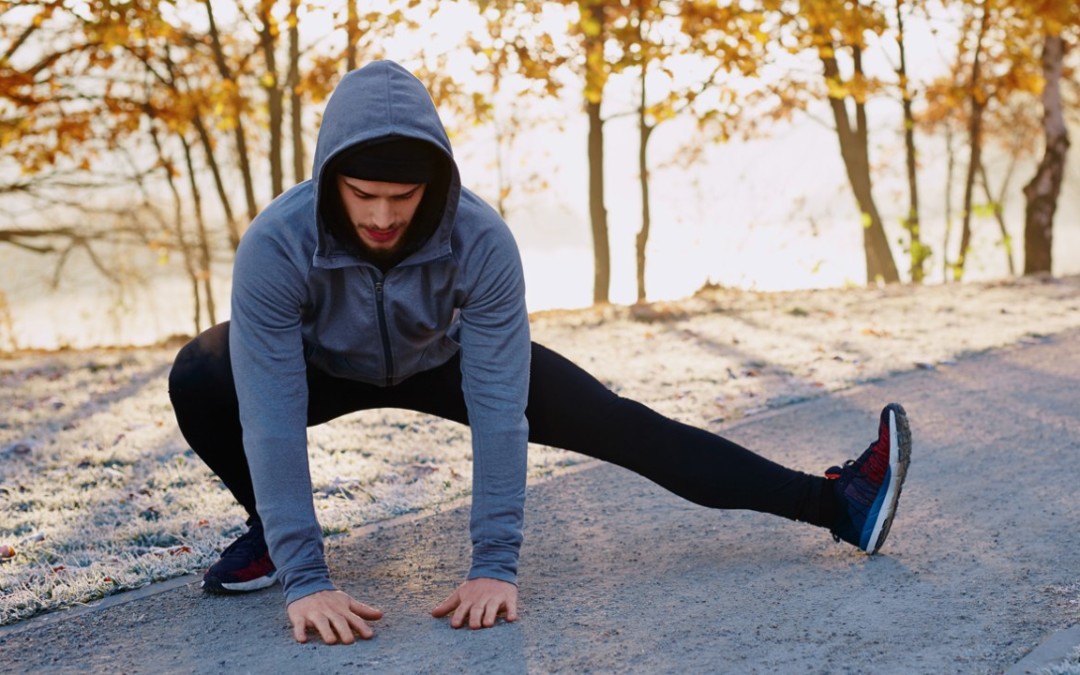Remember recovery!
Now I remember why recovery is essential: I have developed persistent lateral epicondylitis. Popularly called “tennis elbow,” it’s a painful form of repetitive use injury I should have done more to avoid (especially since I already had medial epicondylitis — golfer’s elbow — a couple years ago). I had been adhering to a very intense lifting regimen for 12 weeks, and around week 10 I began having worsening symptoms. And what did I do? I kept ego lifting. I ignored the pain. Then I congratulated myself for being so dedicated, and utterly neglected the process of warming up and cooling down. It’s as if I were a teenager turning my nose up at sound advice from my father. I knew what to do to mitigate this, and I didn’t do it. Just to be stubborn, I guess? (Note: I have found that compression therapy, and especially flossing bands, are fantastic for alleviating the pain that come from intense exercise.)
Why?
Because, like many people who exercise, I prefer to spend the majority of my training time under tension. Practically no one I can think of puts aside enough time for appropriate warm ups, and even fewer stay after to properly stretch down. Jogging for 10 minutes on a treadmill does not warm you up to do biceps curls. A few absentminded arm circles after is not the appropriate cool down for a back workout.
So, why is that I (someone who knows better) and so many others neglect this critical part of fitness? I don’t have any data to support the assertion I’m about to make, but I feel it’s something like this: “My time is already too short and precious to dedicate all my attention to this in the first place.” Combine that with, “I’m not as important as other stuff, so my time for me is diminished.”
I get it: There are all sorts of “important” projects and “important” distractions. There are also self-esteem issues at work here. Why self-esteem? I sense (and I could be wrong) that most of us don’t actually prioritize ourselves very well. We might be slightly narcissistic in general, but that doesn’t mean we actually do a good job of putting ourselves first in a healthful manner. We seem to act as if taking care of ourselves is not as important as taking care of our jobs, taking care of other people and taking care of chores and errands. But if you don’t take care of number one, how can you take care of anything else?
Committing to the process
With that in mind, I need to show the patience and discipline required to use five minutes at the top and bottom of my exercise hour. I have to dedicate it to caring for the body I continuously run through various wringers. And this component of recovery is connected to a broader practice of rest that so many of us neglect.
In exercise, one of the critical components of fitness is recovery. But don’t think of recovery only as seconds between reps, minutes between sets and days between sessions. It shouldn’t be limited to sufficient sleep (which most people, including myself, don’t get). The concept of fitness recovery should extend to maintenance as well. I cannot stress enough how helpful massage, acupuncture, Rolfing, chiropractics and meditation can be as practices to facilitate your progress. They encourage gains toward your goals.
When you exert yourself in new ways or to new degrees of intensity, you are not training only your muscles, bones and connective tissues. You are also training your nervous system. The stresses and injuries your body has to heal are not limited to your aching feet or exhausted triceps. Your brain, spine and peripheral nerves have to evolve and rehabilitate themselves as well. Growing is exhausting, hungry work. Hydrate yourself, feed yourself and treat yourself.
Modalities of Recovery
Invest in the modalities of therapy. They are not extraneous wastes of time or luxuries that eat up your money. They are an integral part of your fitness and wellness process. I’m not saying you have to get a 90-minute massage three times a week (although that does sound awesome). I do advocate giving your entire system the care it needs to recover. This includes not only your exercise, but also your innercise. Be sure to keep your spirit as healthy as your body.
Take your vacation time. Lots of people don’t have it, so I’m kinda angry at you for being too neglectful of yourself to escape when you can. Go to Costa Rica for me — I promise you’ll love it! #PuraVida
Have a spa day. Get your nails done. Do whatever you can, as often as you can, to soothe not only your body, but also your mind. Get your stress down, delight yourself, reduce your cortisol and adrenaline levels. That junk totally undermines your health with rampant inflammation. Pamper yourself as much as you would pamper the person/people you’re courting romantically.
However you do it, take the time to understand and appreciate that you are deserving of rest, recovery, relaxation, and reward. Express your self-esteem with warm ups and cool downs, cute clothes that show off your new shape and full nights of sleep. All this together is a practice of self-care that, and it will give you the energy you need to excel and thrive in your other endeavors. Also, tell your boss I said you deserve a raise and an extra two weeks off.
Recent Updates

Glycemic Index vs Glycemic Load
This score indicates how damaging a food will be to your blood sugar levels. Foods that score 0-55 are rated low impact (and thus presumed to be better for diabetics and those looking to maintain healthy weight and/or body fat ratios), but this is not the whole picture.

Caffeine: 14 better options to ease SAD
Nearly a year ago to the dot, I wrote an article about Seasonal Affective Disorder (SAD), but there I focused on the importance of getting access to a full range spectrum of light. Here I’d like to focus on caffeine and sleep’s effect on SAD. I’ll also offer suggestions for what to do to help you feel better on the dark days.

Avoid fish oil supplements
I don’t generally promote supplements. Most of them play to specific, isolated points of medical research to serve as a magic pill. One remarkable example of this is fish oil.

